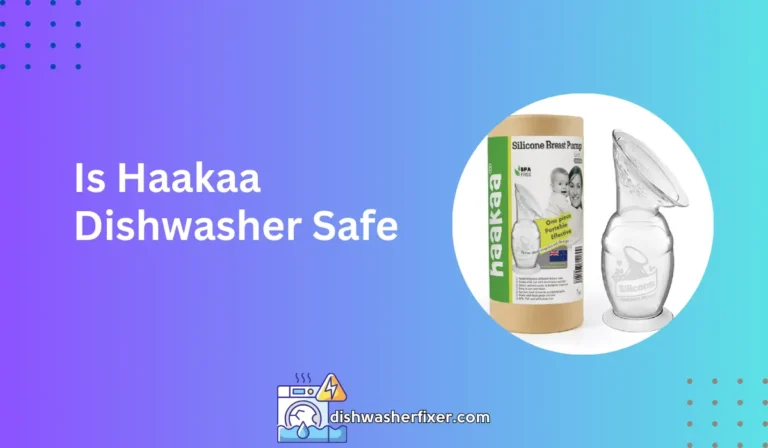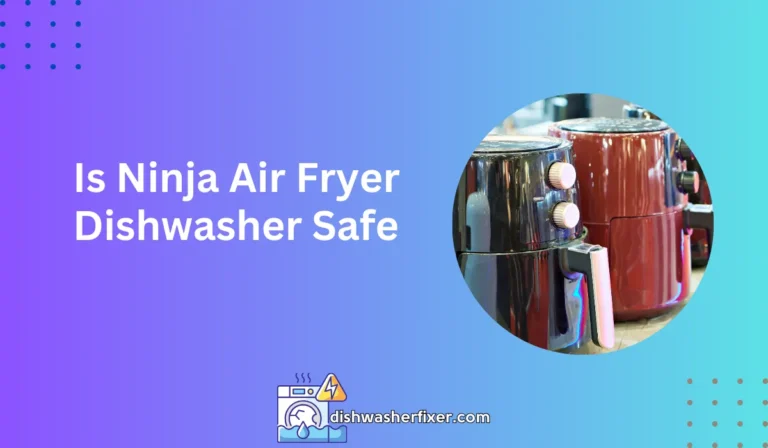Why Do My Knives Rust in the Dishwasher? Avoiding Damage!
Knives rust in the dishwasher due to prolonged exposure to moisture, high heat, and harsh detergents, which can corrode metal. Hand washing and prompt drying are recommended to prevent rust.
The Science of Rust Formation
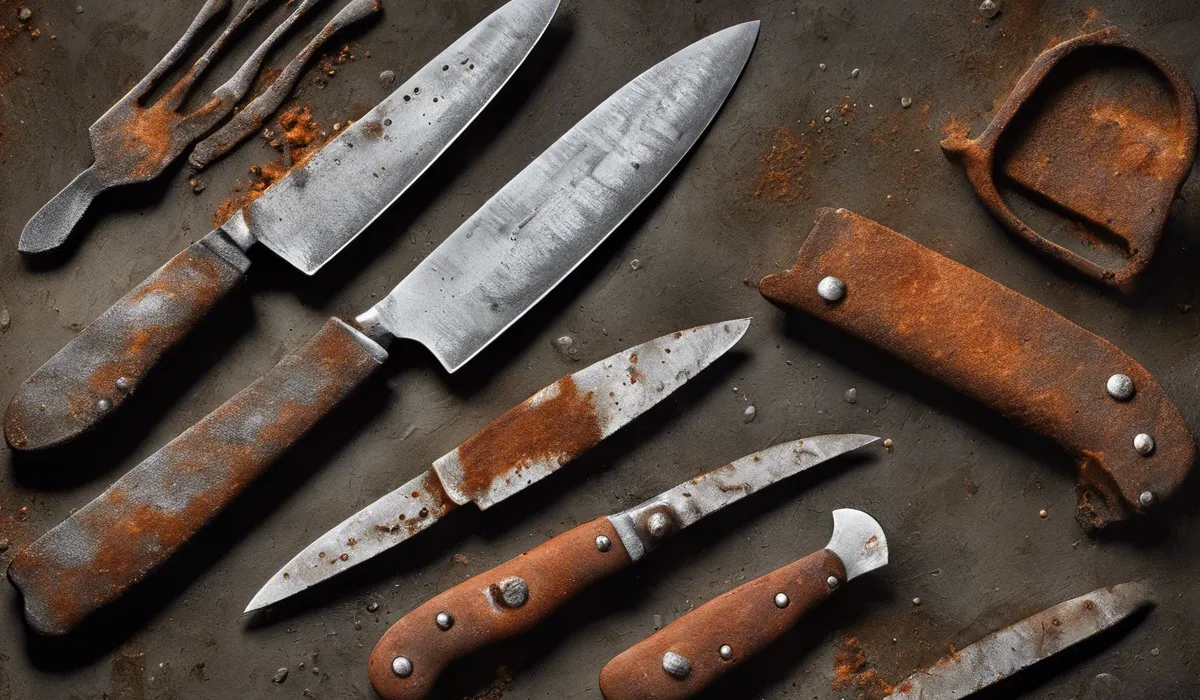
Understanding Rust: The Basics of Oxidation
Rust is a type of corrosion that occurs when iron, or an alloy containing iron, such as steel, is exposed to moisture and oxygen over time.
The result is iron oxide, commonly known as rust. This chemical reaction starts with the iron atoms losing electrons to oxygen atoms, a process known as oxidation.
Once started, this reaction can slowly degrade the metal, weakening it and compromising its integrity.
Knife Materials and Rust Resistance
Knives are made from various metals, with stainless steel being one of the most common due to its resistance to rust.
Stainless steel contains chromium, which forms a protective layer of chromium oxide on the surface, shielding the iron from moisture and oxygen.
However, not all stainless steels are equal. Lower-grade stainless steels with less chromium can still be prone to rusting, especially when exposed to the harsh conditions inside a dishwasher.
The Role of Dishwasher Elements in Rust Acceleration
The combination of water, oxygen, and dishwashing detergents creates an environment where rust can thrive. Dishwashing detergents often contain harsh chemicals that can strip away the protective layers on metal, leaving it vulnerable to oxidation.
Moreover, the presence of salts, either from food residue or water softeners, can further accelerate the rusting process by conducting electricity and enhancing the rate of corrosion.
Heat and Humidity: Catalysts for Corrosion
Inside a dishwasher, heat and humidity levels are high. This not only speeds up the oxidation process but also ensures that knives remain in contact with corrosive elements for longer periods.
The drying phase can be particularly damaging if knives are not dried quickly, as lingering moisture continues to provide a medium for rust to form.
Dishwasher Use and Its Effects on Knives
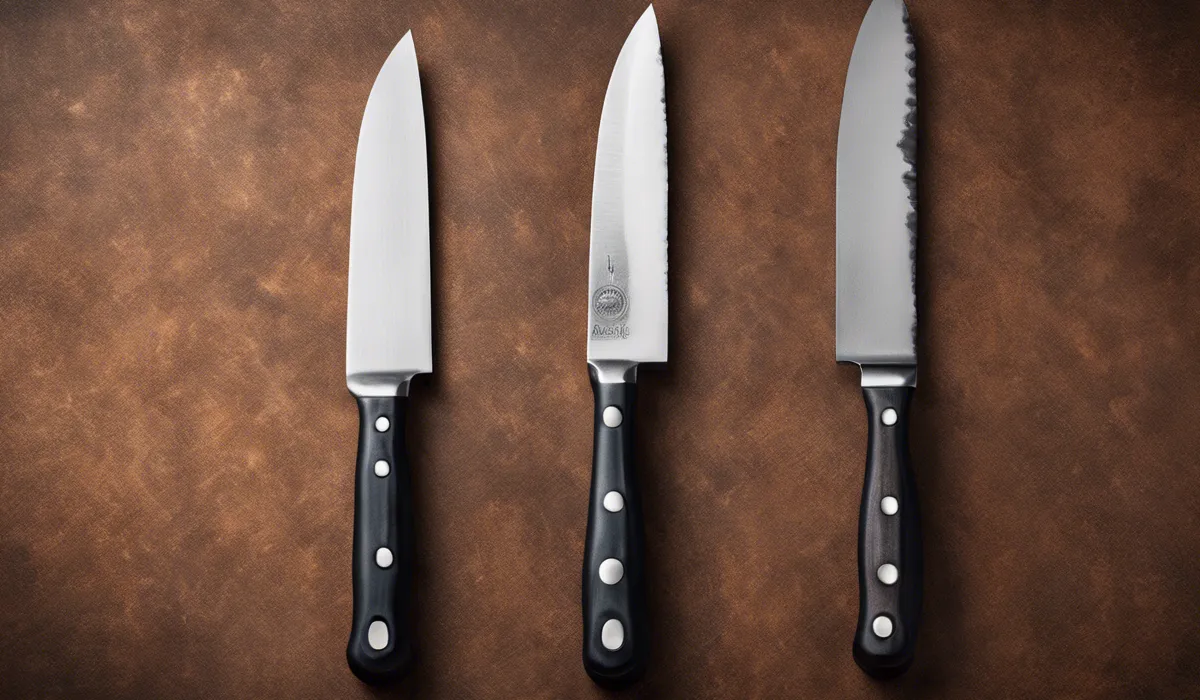
How Dishwashers Clean: The Mechanics and Chemicals
Dishwashers clean by spraying hot water mixed with detergent onto the dishes. The combination of heat, water pressure, and cleaning agents dislodges and dissolves food particles.
While effective for cleaning, these conditions are not ideal for knife preservation as the harsh chemicals can damage knife surfaces.
Comparing Hand Washing to Dishwashing for Knives
Hand washing knives with mild soap and warm water is gentler than using a dishwasher. It allows for immediate drying, which is crucial in preventing rust.
Additionally, hand washing lets you control the cleaning process, ensuring that knives are not subjected to prolonged exposure to water and chemicals.
Mistakes That Lead to Rust in Dishwashers
Common mistakes such as improper placement or overcrowding can cause knives to rust in the dishwasher.
Overcrowding may prevent knives from drying properly, and if sharp edges touch other items, it can cause damage that makes the knives more susceptible to rust.
Improper placement can lead to water pooling in crevices, which accelerates rust formation.
The Toll on Knife Edges and Handles
The aggressive environment inside a dishwasher can dull knife edges, as the motion of water and contact with other objects can cause micro-abrasions.
Handles made from materials like wood or certain plastics may warp, crack, or degrade due to the heat and moisture, further compromising the knife’s integrity.
Preventative Measures and Best Practices
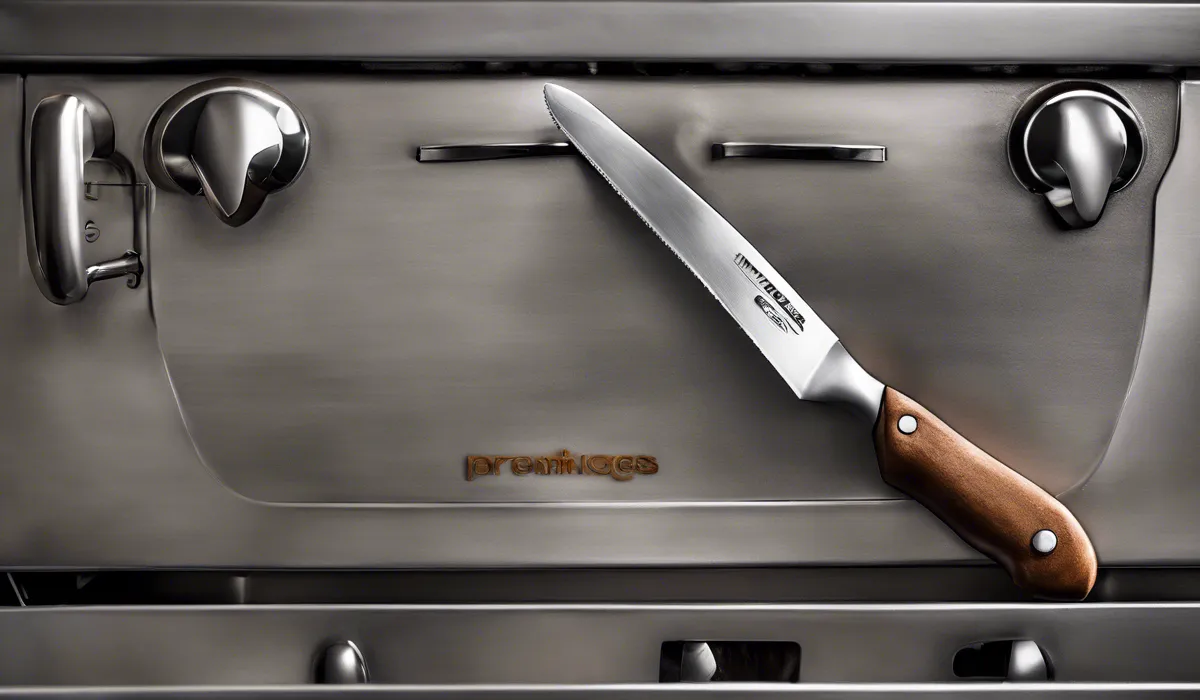
Selecting Dishwasher-Safe Knives
When purchasing knives, look for those labeled as dishwasher-safe. These knives are typically made from higher-grade stainless steel with sufficient chromium content to withstand the dishwasher’s harsh conditions. They may also have handles designed to resist heat and moisture.
Maintenance and Care for Longevity
Proper maintenance includes hand washing knives and drying them immediately after.
Regularly oiling the blades can also form a barrier against moisture. For knives with wooden handles, occasional treating with mineral oil can prevent water from seeping in and causing damage.
Alternative Cleaning Methods
If you want to avoid the dishwasher altogether, consider using gentle dish soap and warm water.
Immediately dry knives with a soft towel to remove any moisture. For stubborn residue, use a soft sponge to avoid scratching the metal, which could make it more prone to rusting.
Storage and Handling to Prevent Rust
Store knives in a dry place, ideally in a knife block or on a magnetic strip that allows air to circulate around the blades.
Avoid storing knives in a drawer where they can come into contact with other utensils and potentially collect moisture.
Proper handling includes using knives for their intended purpose and avoiding actions that could damage the blade or handle.
FAQs About Knife Rusting in Dishwasher
Why do my knives rust after being washed in the dishwasher?
Knives rust in the dishwasher due to prolonged exposure to moisture, the high heat of the wash and dry cycles, and the harshness of some detergents, all of which can contribute to metal corrosion.
Can all knives go in the dishwasher without rusting?
No, not all knives are dishwasher-safe. Many knives, especially those made of high-carbon steel, are prone to rusting and should be hand washed instead.
What is the best way to prevent my knives from rusting?
The best way to prevent rust is to hand wash your knives and dry them promptly after washing.
Does the type of dishwasher detergent affect knife rusting?
Yes, harsh detergents can accelerate the rusting process. It’s recommended to use gentler detergents and avoid those with chlorine if you must put knives in the dishwasher.
Are there any dishwasher-safe knives that don’t rust?
Some knives are made from stainless steel or have special coatings that are more resistant to rust, but it’s still recommended to hand wash to maintain their condition.
Final Thoughts
Knives rust in the dishwasher due to the aggressive conditions inside, including prolonged moisture, elevated temperatures, and the use of harsh detergents.
These factors contribute to the corrosion of metal. To preserve knives and prevent rusting, it’s advisable to hand wash them and ensure they are dried immediately after washing.



